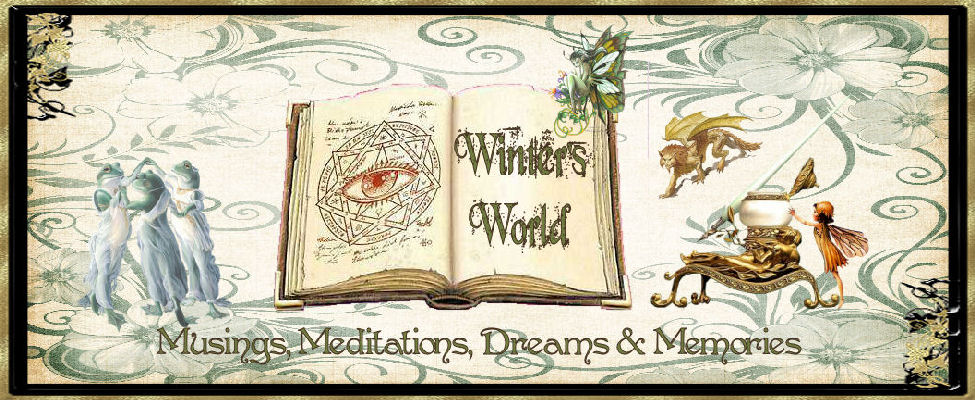Poly-pantheism is the combined beliefs of Polytheism and Pantheism
Pantheism:
In pantheism it begins with the ALL. The pantheistic belief that all things are connected and all the realms of the multiverse are ONE spiritual being. ALL beings, every thing, every molecule of the universe has an energy like connection to everything else. We are connected to each other, to the plants, and animals, and stars, and they are connected to us. In pantheism this connection in and of itself is divine, the ultimate expression of true divinity IS the connection.The gods and goddesses in pantheism are aspects of this connection. Each deity is an aspect of the ALL. Therefore each deity is directly connected to each of us as well as each other. All of these aspects can than be considered to all be one deity with many faces. In pantheism a person searches for the divine within themselves. Because all things/beings are pieces of the divine each person can then consider themselves divine through this connection. Because each person is divine, in essence a god or goddess unto themselves, they have no need to search external forces to fulfill their spiritual needs.
This does not mean however that a pantheist does not acknowledge different deities. Many pantheists make a special connection with a particular aspect of the divine in the guise of a specific deity. This deity is a representation of the living divine within that person. For example: a pantheists who worships the Egyptian goddess Bast will most likely have an infinity for cats and find that the peace and protection of their home life is among the most important things to them. A person who worships the Greek god Apollo will most likely enjoy the fine arts, bright sunny days, and may even have the gift of prophecy. Pantheists take the expression of the divine from within themselves and manifest it as a particular deity with matching attributes.
There are some pantheists who rather than finding a specific deity to connect with instead revere the ALL purely as is. Their allegiance then becomes one with the pure energy of the divine, faceless with many faces, nameless with many names, timeless throughout all time. This may take the form as a single cosmic energy or as in many cases is divided into the masculine and feminine principles. One goddess who is all goddesses and one god who is all gods. This allows a pantheist to recognize the divine roles of males and females in all aspects of life without having to commit to any specific aspect. In the case as with the previous case of aspected pantheism the person will look within for their connection to the divine. These people will acknowledge the different gods and goddesses as different aspects of the divine but rather than choosing a specific aspect to work with they will work with them all in the guise of the Lord and Lady, the masculine and feminine principle.
Polytheism:
On the other hand in polytheism all deities are intrinsically separate and our connection with them only occurs after contact is made through worship and study. Polytheistic deities exist as separate individual entities. Each deity, as a separate entity, has their own sets of values and requirements for their worshipers.All of the ancient gods and goddesses of our ancestors are considered to be physical living beings separate from each other. As in the case for pantheism the polytheistic practitioner will gravitate towards deities that have similar attributes and temperaments as their own. The main difference here is that the polytheist will look for their deity externally. While pantheism denotes a life of "self service" to serve the gods, polytheism is much more directly an individual service to a specific deity/deities. Polytheism requires the acknowledgment of each deity as wholly separate entities requiring different devotional techniques from their followers.
This separateness allows the polytheist a very intimate spiritual place. It allows them a seat in the presence of their specific deity, in essence making them special and marking them as worthy individuals. Polytheists will continually endeavor to please their deities by studying and by service. It is important to learn of the historical and modern religious applications for each persons deity so they may better serve that deity's individual interests. And it is through this service that the polytheist gains spiritual fulfillment.
In the eyes of Pagans both of these points of view are good and correct. Most Pagans find a very happy home as either a pantheist or polytheist. I on the other hand found a deep connection with both. Instead of restricting myself to one theological system I learned how to incorporate both into my spiritual life, hence the term poly-pantheism.
Poly-pantheism:
I believe that all things within the universe are connected and that I am a part of that connection. I do believe in the ALL, and I do believe that as a part of the ALL I am a goddess. So on those grounds I look within myself for my spiritual answers. But as an individual person with my own needs and desires separate from my fellow humans I also believe that the different gods and goddesses are separate individuals with their own needs and desires, worthy of individual attention.
No comments:
Post a Comment